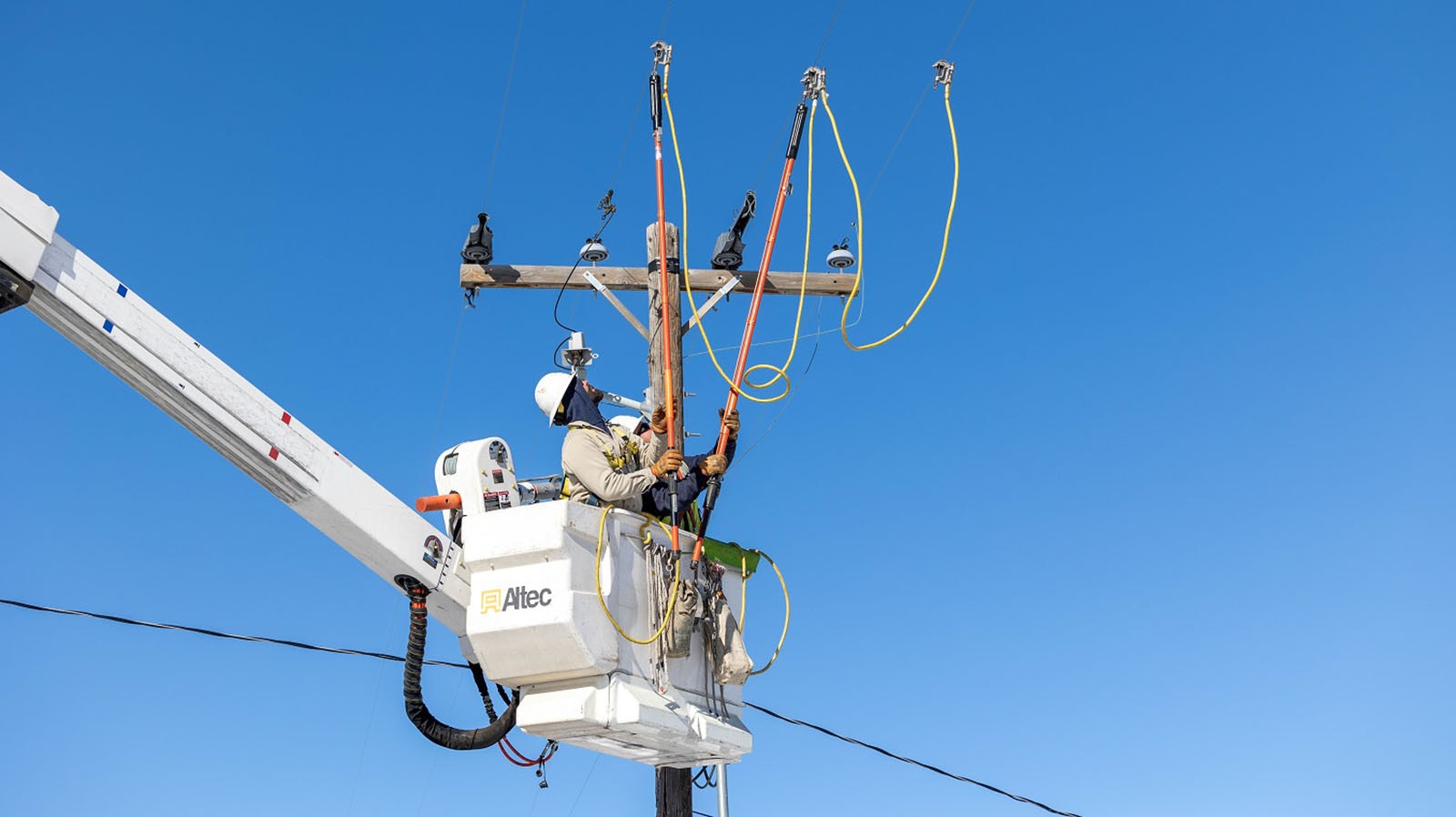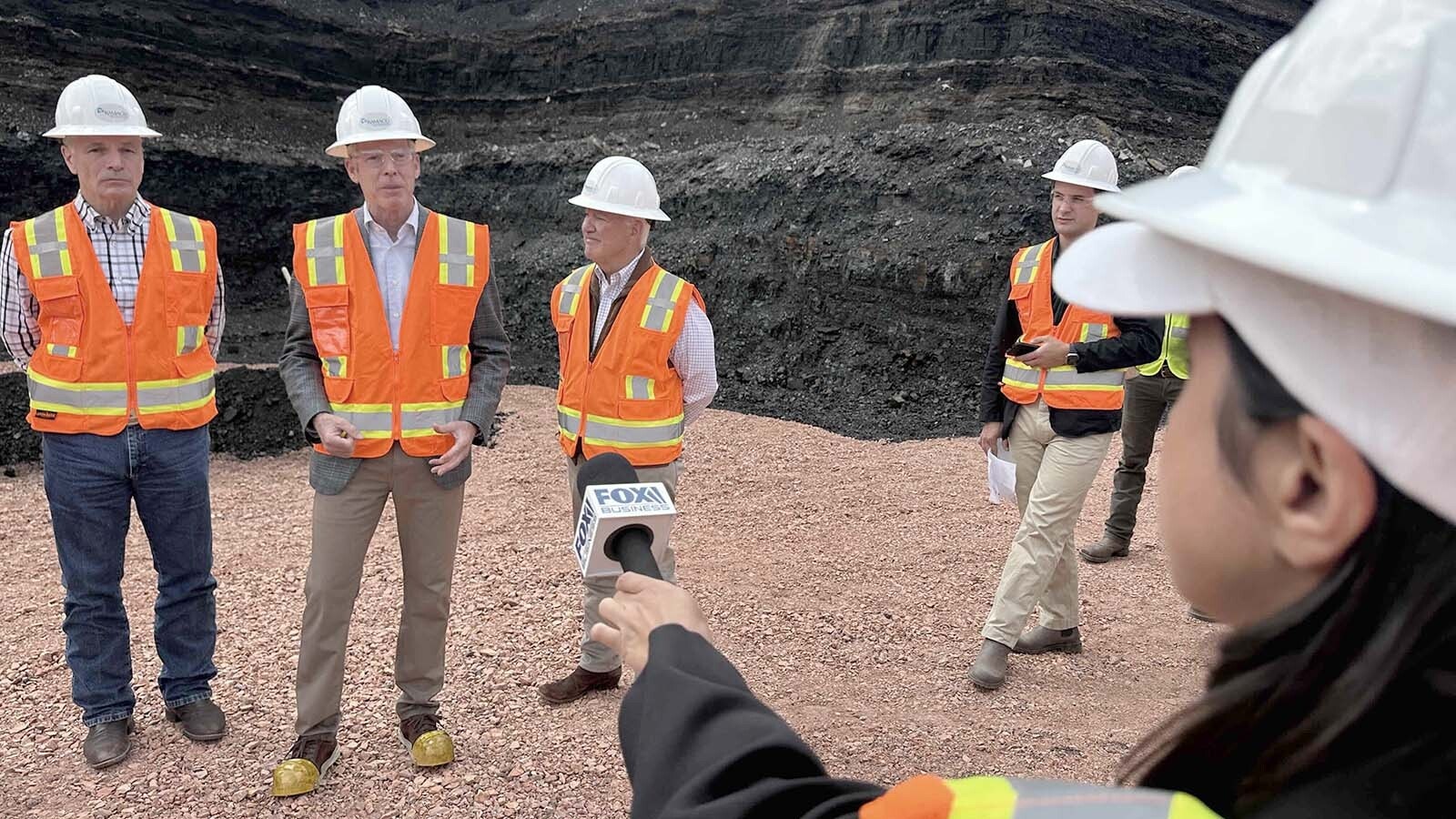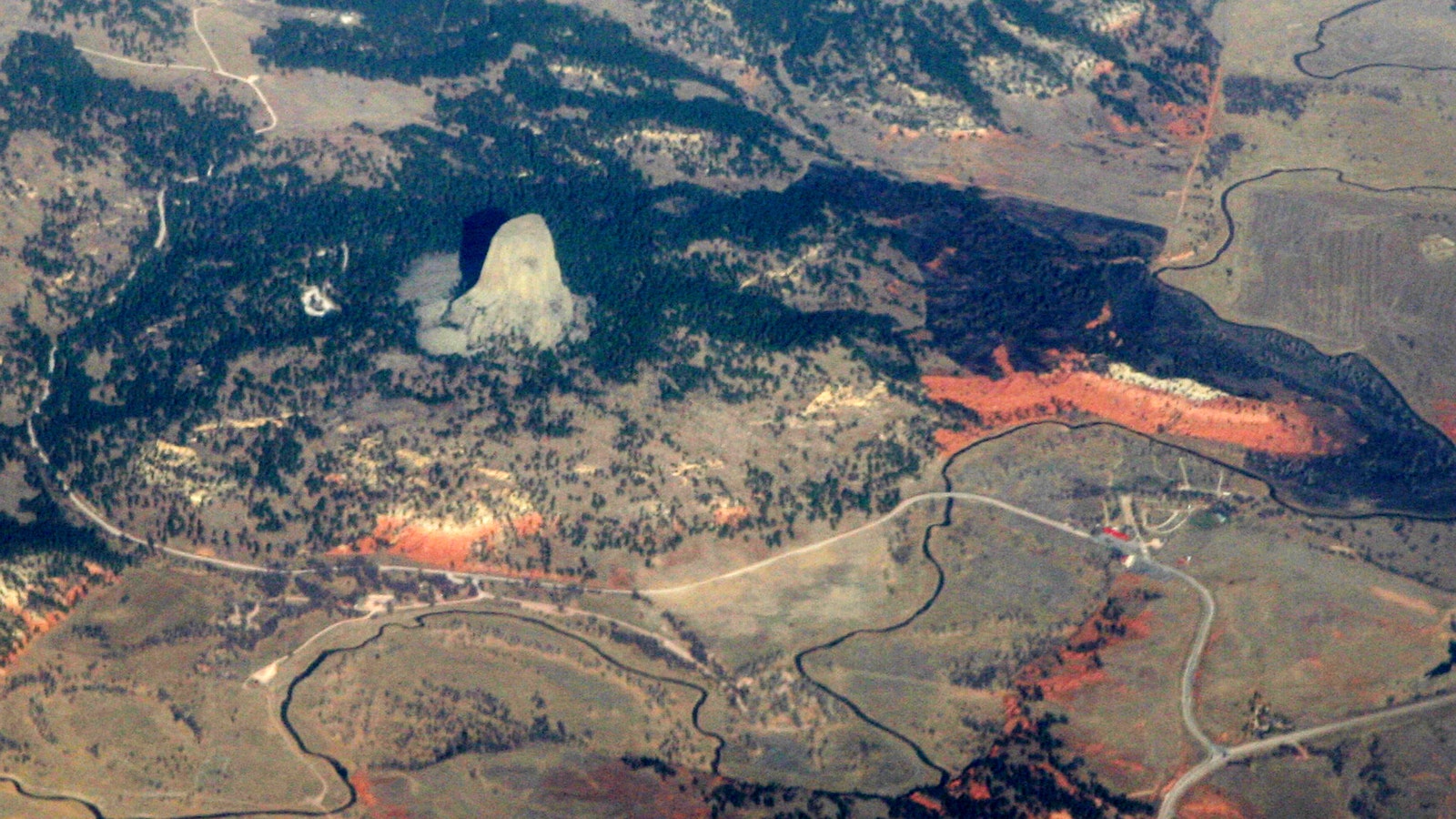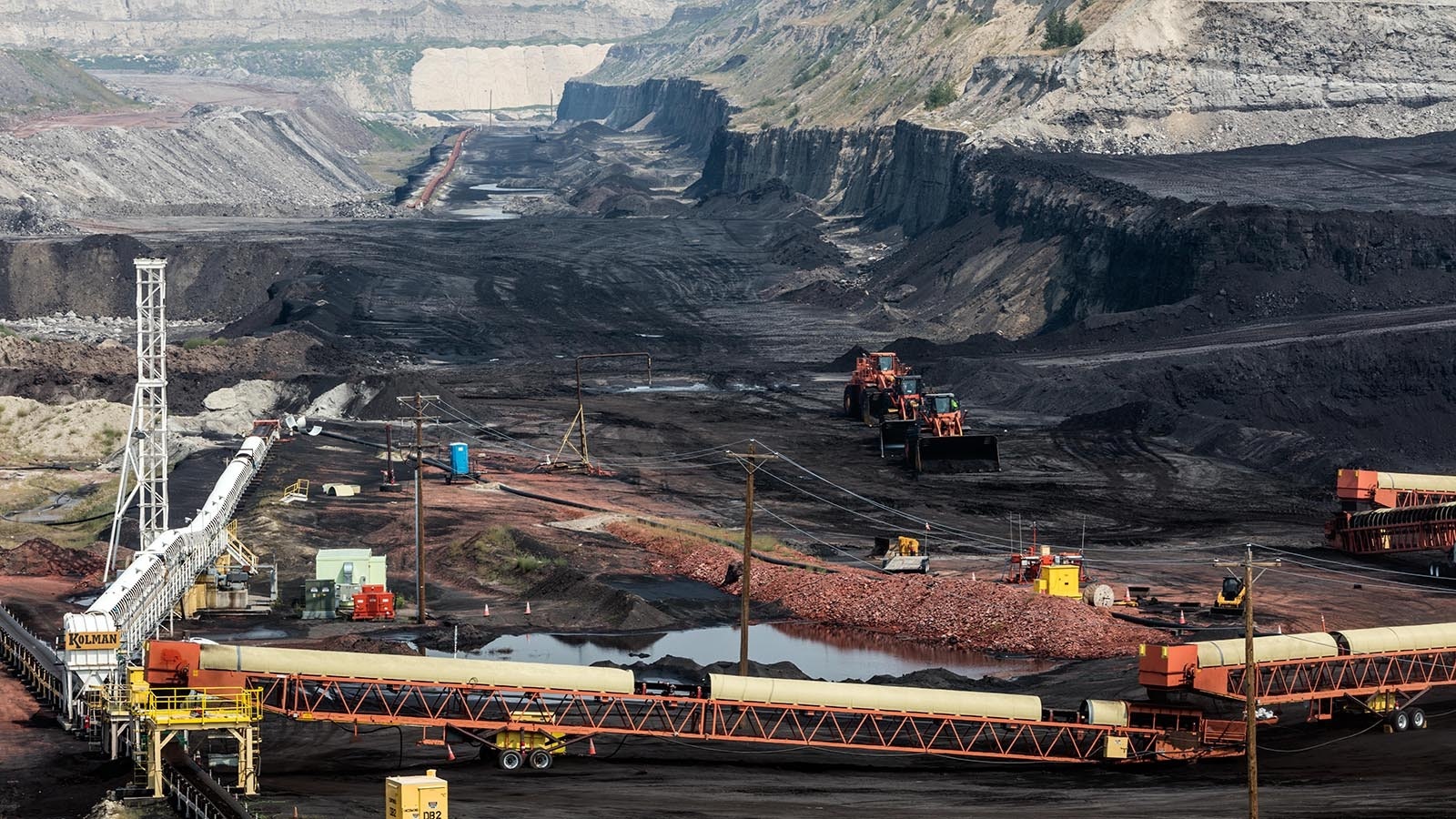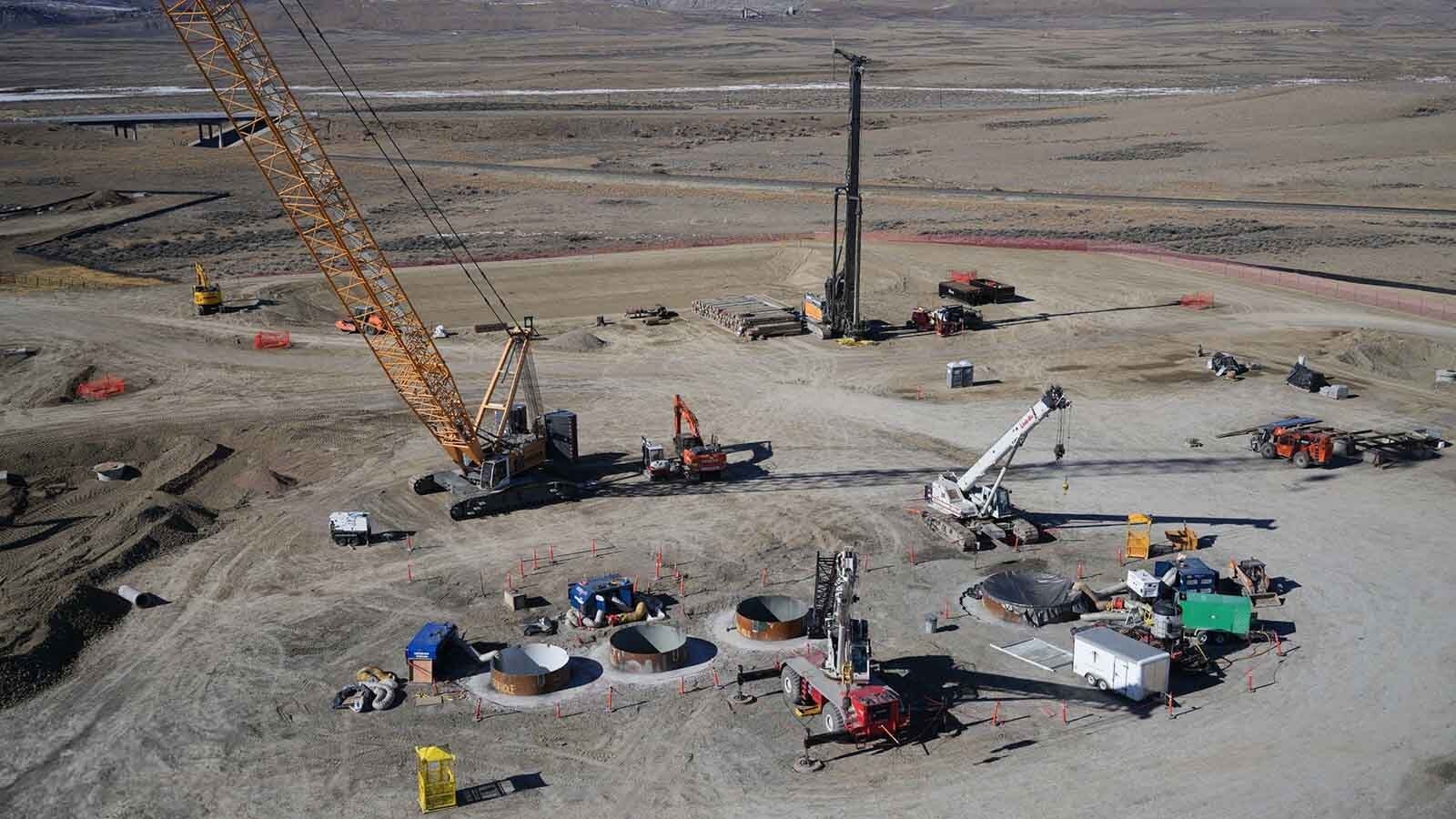A request by Rocky Mountain Power to increase its rates by more than 30% has put Wyoming’s largest utility in the crosshairs.
A Wyoming Public Service Commission hearing in Casper last week drew four hours of testimony from elected officials, industry representatives and angry residents. An estimated 200 people showed up to the hearing, so many that a separate spillover room has to be opened to accommodate the crowd.
The state legislature is also getting involved. After hours of hours of testimony Friday, the Corporations Committee decided several bills will need to be drafted for consideration, with extra meetings likely scheduled to consider them all.
Freezing Pipes
Members of the public took the opportunity to express their concerns to the committee.
Candy Larson, who lives south of Douglas, came with two signs. One read “Save the eagles!” and the other “No Green New Deal!”
Larson said that she experiences power outages once a week. Last winter, she said she had an outage that lasted 15 hours when it was minus 22 degrees outside. She lives in a mobile home and her pipes froze as a result.
“I’m concerned that maybe Rocky Mountain Power should be putting more interest into their current infrastructure and not into wind farm expansion,” Larson said.
She had attended the PSC hearing and said that every comment was opposed to the rate increase.
Farmer and rancher Colt Rodamen, also of Douglas, said that he uses electricity to drive irrigation pivots on his property, and the rate increase would add costs to his operation.
“Hay prices are going to be outstanding on my place,” he said.

Vital To Business
Austin Rueschhoff, an attorney with Holland & Hart, spoke on behalf of Wyoming Industrial Energy Consumers, an organization that represents 20 large industrial consumers that buy energy from Rocky Mountain Power.
Rueschhoff said its members spend millions of dollars on electricity every month. Rates in the state, he said, have been steadily increasing for years, and 10 to 15 years ago, Wyoming had the lowest industrial electricity rates in the country. Today, Wyoming ranks around the middle. This is impacting the ability for Wyoming businesses to be competitive and the state’s ability to attract new businesses.
“They understand that low electricity rates are vital to our business interests and critically important to the state,” he said.
Shared Expenses
The committee scrutinized the multi-jurisdictional protocol, which allocates costs across states.
As a utility serving multiple states, Rocky Mountain Power allocates some costs it bears across states according to a formula based on how much power each state consumes. For Wyoming, that is 15%.
Public Service Commissioner Chris Petrie explained that some costs are considered to be specific to a jurisdiction and those aren’t shared, and some are considered to be multijurisdictional.
The committee raised the question if renewable energy policies in other states, which end up adding costs to the grid, are considered multi-jurisdiction.
Sen. Cale Case, R-Lander, wanted to take a look at how much Wyoming is bearing the costs of building transmission lines, which are exporting wind power out of the state of Wyoming to satisfy green initiatives in other states — with no benefit to Wyoming. He also suggested the committee look into if Wyoming is being allocated the costs of carbon taxes in other states.
“We pay a percentage for another state’s increase in the cost of carbon,” Case said.
Among the draft bills the Corporations Committee will consider is one that will set principles upon which the multi-jurisdictional protocol would exclude costs to be shared by Wyoming consumers.
The committee will also receive a presentation with more details on the multi-jurisdiction protocol at its next meeting in October.

